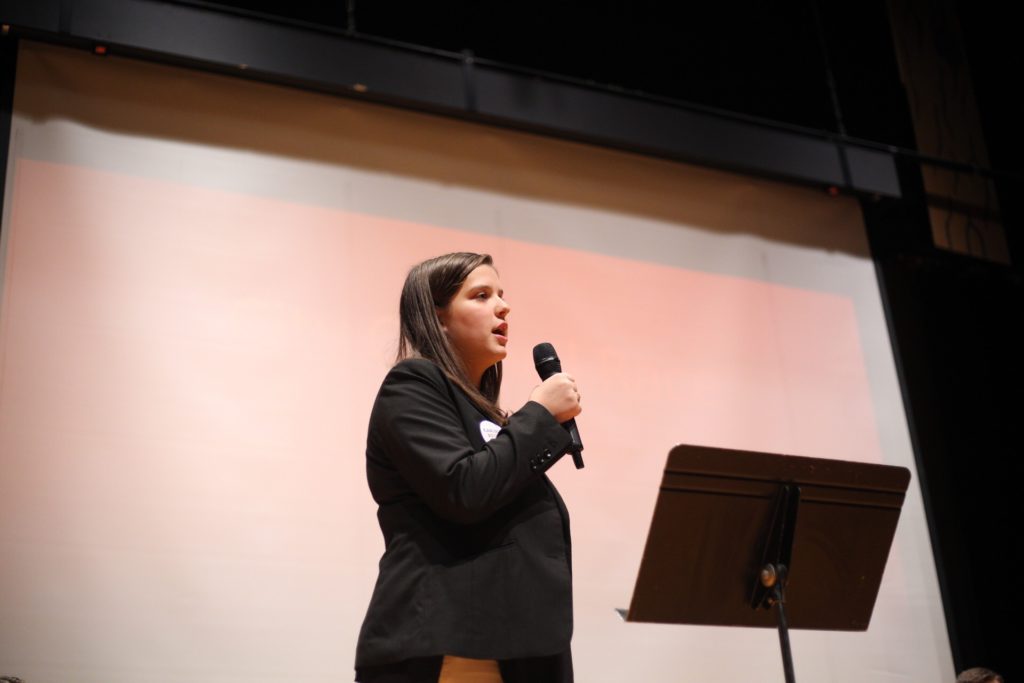
By Ryla Pasaoa, staff writer
November 6 marked the end of the 2017 Election Simulation, and students were able to vote for those representing important municipal political figures. While all candidates took every chance presented to them to share their ideas to convince voters, the Democratic party ultimately won five out of the six races this year.
Bill de Blasio won the mayoral race, Scott Stringer for comptroller, Melinda Katz for Queens Borough President, Carlina Rivera for City Council (District 2), and Liz Crowley also for City Council (District 30). However, Republican candidate J.C. Polanco won his race for New York City Public Advocate.
Senior Pascal Marktell played the role of Scott Stringer, the Democratic candidate for Comptroller, who won in both the Election Simulation and the real election. He believed that the outcome was “fair… [because] we ran a better campaign than the other team. The results reflected real life perfectly as Scott Stringer won by a wide margin in the actual election as well.”
Melissa King, who played Nicole Malliotakis, the Republican candidate for the mayoral race, shared similar thoughts on the results of both the simulation and real life elections. She commented that the “results were extremely close.”
New this year was the livestream advertisements that were broadcasted during lunch bands. Junior Amisha Saha enjoyed the telecast saying, “It really showed the more fun aspect of the simulation. Although it is mostly about learning and understanding the ins and outs of politics, it’s also a way for the school to have fun in a unique way.”
Social Studies teacher Adam Stonehill, who emphasized the importance of the Election Simulation in his history classes, commented on the general similarity of the results of the simulation to that of reality. He explained saying, “[The outcomes] are relatively reflective of what we see in New York City. The students are children of those who are voting, so it’s nice that they’re [being] informed.” He continued to comment on the efforts of certain candidates saying, “I think that it is very rare to get a different result from what [happens in real life]. When we do, that’s a real testament to the candidate, who probably did a great job in order to do that.”
Freshman Benjamin An described his first Election Simulation as a major learning experience. He said, “I didn’t know that half of these positions nor the candidates running for them. I learned a lot from the simulation, especially about the importance of voting even on a municipal level.”
Sophomore Nicole Monaco agreed saying, “I already knew the general roles of each political position in the government. [However,] by listening to the stances of various candidates, I learned that the political party that you’re in does not limit you to a certain set of beliefs.”
While the Election Simulation came to a close, and candy will no longer be spontaneously distributed throughout social studies classes, students can appreciate their newfound knowledge and anticipate next year’s.



























